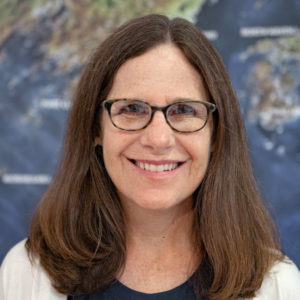“The neighborhood is changing” was the refrain from Lawrence Alexander, an equity educator who spoke at the Island Institute’s Workforce Pathways Conference in October. The refrain suggests that if Maine is to thrive, it will be because we embrace change on almost every level, including changing who lives and works in our communities.
In Alexander’s lively and humorous remarks, he made the business case for equity and inclusion in schools, workplaces, and neighborhoods.
Amanda Rector, Maine’s state economist, who spoke earlier, reported the demographic and economic trends in Maine that reflect a lack of age and racial diversity.
Alexander asked the educators and employers attending to consider the ways we are trying to hold onto what was when we need to prepare ourselves, our schools, and our workplaces for what will be.
One-size-fits-all approaches in public education are inherently inequitable…
Leaning into diversity and equity is seen as a moral imperative by many Maine schools, businesses, and non-profits. But it’s also the smart thing to do if we care about the future success of our state. Alexander notes that if we resist becoming more diverse, we do so at our own peril.
Consider millennials, born 1981-1996. They are the most educated and yet underemployed generation in history in part because society did not adequately connect what was happening in school with what would be needed in the workplace.

In my nearly 20-year role as a school counselor beginning in the mid-1990s, I embraced the “college for all” movement with the best of intentions, thinking it was both inclusive and equitable. But one-size-fits-all approaches in public education are inherently inequitable because students have such diverse backgrounds, levels of privilege, and social and academic needs.
What I should have been doing, and what schools and businesses are now starting to pursue, is connecting students to the type of postsecondary education and/or training that will lead them to career pathways that are fulfilling and financially viable. This includes preparing them for global citizenship regardless of where they live or work so they can both enjoy and foster a sense of belonging wherever they are.
So how do we do that? Alexander explained it as an equation: diversity plus equity plus inclusion equals belonging. Diversity on its own is merely a fact—differences exist. When we choose to center equity, we can start to see people where they are and meet their needs.
Inclusion is the actions we take to ensure our schools and workplaces are safe and fair for everyone. Being able to bring every aspect of our identity, our full selves to school, workplace, and neighborhood will be the result, and that equals belonging. If we neglect to do racial and other equity work, then we are telling current and future students, employees, and community members they cannot fully bring themselves to school or work. And they won’t.
If we make an ongoing and active commitment to diversity, equity, and inclusion, people will feel they belong in this school, this workplace, this neighborhood, and this state.
Because Maine is predominantly white we need to learn how to talk about race and normalize diversity in school and in the workplace. This is hard to do, especially for white people like me. I do not get daily reminders from the dominant culture that I am somehow less than or “other” because of how I look or live.
Alexander stresses the importance of cultural competency as a 21st century skill that employers value and schools and workplaces must teach and model.
As white people are able to talk about race and examine policies and practices that improve schools, workplaces, and neighborhoods, they gain cultural competence.
When we address all aspects of diversity, especially race, we are telling everyone their full humanity is welcome and belongs here. If we get this right, everyone will benefit, especially those born in the last 25 years. They will attend schools and live in communities that will prepare them to belong and thrive in racially diverse workplaces with unlimited options.
The neighborhood is changing, and so must we.
Yvonne Thomas is a community development officer and education specialist with the Island Institute, publisher of The Working Waterfront. She may be reached at ythomas@islandinstitute.org.




